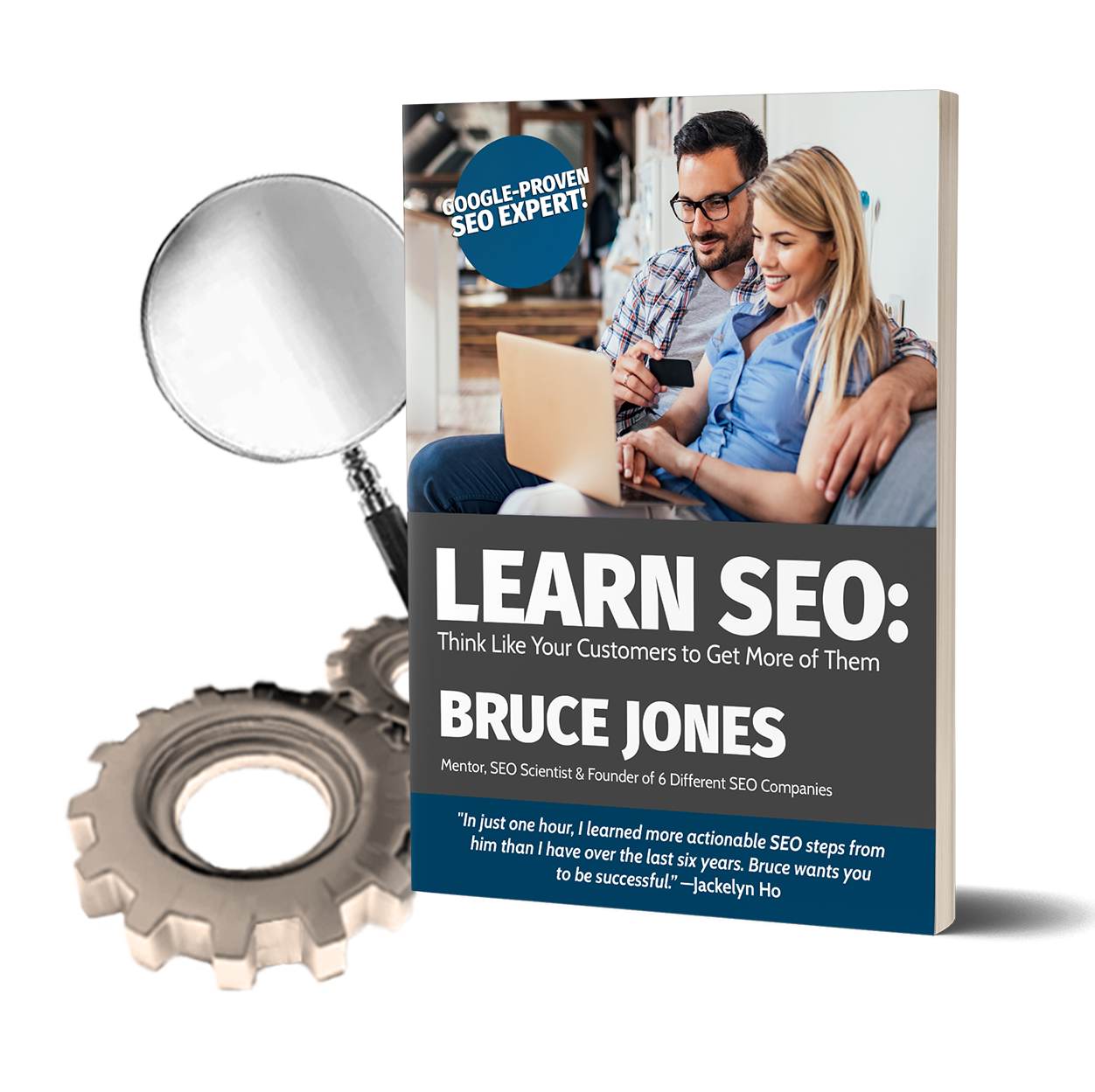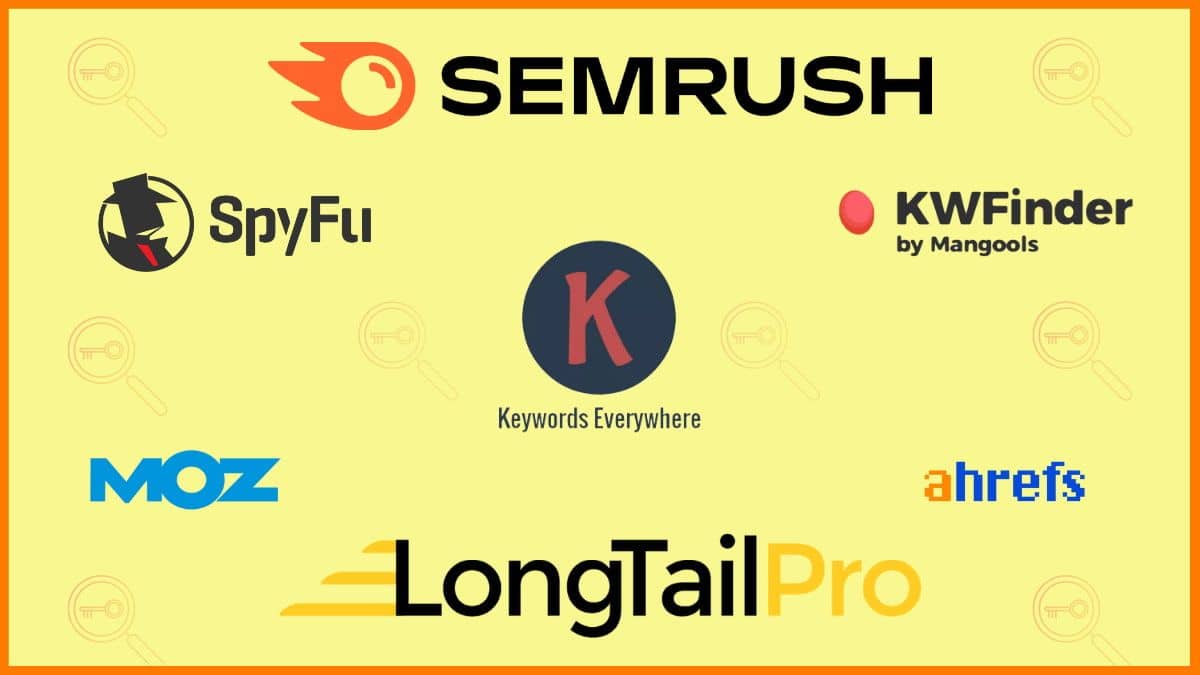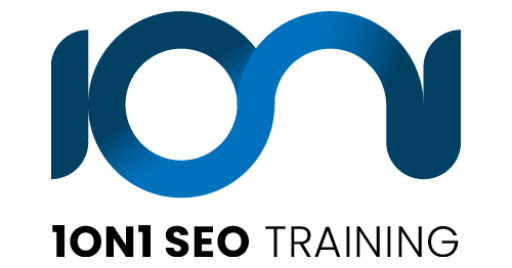KEYWORD RESEARCH TRAINING
1ON1 SEO Training offers exclusive, one-on-one keyword research training for entrepreneurs, small business owners, SEO specialists, digital marketers, PR professionals, and more! Get two one-hour sessions for $200.
Keyword research is one of the three robust foundations of successful search engine optimization, alongside content and backlinks building. Keyword research is often the first step and the first obstacle to carrying out an SEO strategy on any website.
If you’re struggling with keyword research, work with Bruce Jones and benefit from expert mentoring, advanced keyword strategy insights and agency-level keyword research training.


Bruce Jones is an author, educator, SEO scientist, and founder of six SEO companies. Bruce has practiced SEO for twenty years, and in this time, he has developed a unique family of tools and systems to tackle every SEO-related problem. One of his lifelong passions is teaching others, and combined with his professional track record of helping countless innovative companies grow with digital marketing and SEO, you have the perfect partnership for overcoming challenges in search engine optimization.
"Let Bruce Jones become your expert resource on keyword research and SEO, now and in the future."

With artificial intelligence and machine learning now guiding how information is categorized and consumed on the internet, it’s going to be challenging to keep up with all the developments without an SEO coach working with you from the start. Avoid all the uphill battles associated with learning something from scratch: work with Bruce Jones SEO here at 1ON1 SEO Training and master keyword research skills with our exclusive keyword research course!
“Let’s prove the method by seeing how successful you can be after we work together.”
Learn the Best Practices for Keyword Research
Search engines rely on keywords to determine what your content is about. Keywords used by users in their inquiries and terms used throughout a piece of content are both analyzed by sophisticated methods built into algorithms. This allows them to provide the user with relevant content. Keywords can be as simple as a single word or as complicated as a sentence.
People will use them to find information about products, services, and businesses online.
When adequately investigated and optimized, keywords work as the bridge between your website’s target customers and the site itself. Unfortunately, no matter how often you’ve heard it or if this is your first time, the statement “Keywords are dead” keeps making its way into SEO circles. Ironic!
Keywords used to be the primary way to tell search engines what your content was about before the advent of semantic search. The more frequently a term was utilized, the more relevant the text was seen to be. This, unfortunately, paved the way for harmful tactics like keyword stuffing that were meant to fool search engines.
Learning the best strategies for keyword research and designing a winning keyword strategy is imperative if you want to get the best results. Not all keywords are worth pursuing, and the types of terms you will use on your keyword list and content strategy will depend mainly on the size of your campaign, your business goals, and how much time and resources you can invest in optimization.
Not knowing how to perform keyword research properly might mean that your campaign will start in the wrong direction, and you’d have to correct course midway. Remember, keyword research is part of the Big Three of SEO: keywords, content strategy, and backlinks. The rest will tip over if one of these components is imbalanced or simply wrong.

What Are People Truly Looking for Online?
In the past two decades, keywords have played an enormous role in SEO and PPC, effectively attracting target customers’ attention with minimal effort.
However, since SEO works primarily with customer logic, people have been using keywords to optimize online media even before the term SEO was coined.
Existing research on keyword value in content and search behavior of customers online shows a strong connection between search performance and keywords.
However, we still don’t know how consumers choose long tail keywords at various points in the purchase process and how marketers may best tailor tactics to consumers’ online shopping and searching habits.
According to existing data, buyers go through a predictable journey that varies from product to product.
There are four stages:
1. Learn-Learn-Feel-Do
This is for high-thinking and high-involvement products
2. Feel-Learn-Do
This is for high-feeling and high-involvement products
3. Do-Learn-Do
This is for low-thinking and low-involvement products
4. Do-Feel-Do
Finally, this is for low-feeling and low-involvement products
Learn the Connection Between Keywords and Intent
The motivation behind a user’s search query (also known as search intent) is what many search engines try to uncover first before presenting information to users.
Search engines exist primarily to return valuable results to consumers.
Therefore, it is crucial to comprehend how search intent affects your ability to rank. Google has invested heavily in understanding the motivations underlying users’ inquiries.
The intent of a search is the reason for that search. Everyone who conducts an online search does so with the expectation of discovering something. But is there a question that needs to be answered?
Do you know whether they have a specific URL in mind? Alternatively, are they shopping online because they found what they were looking for?
Different phases of the user experience online often correspond to different sorts of searches.
Google has put in a lot of time and effort over the years to perfect its algorithm for understanding users’ intent when searching.
Google aims to return results relevant to the user’s search query and consider the user’s intent. That’s why it’s essential to tailor your post or page to the specific needs of your target audience.
What About Competitors?
To better your SEO strategy, you should conduct competition analysis to see which keyword list terms your rivals emphasize. Then, if you put in the time and effort to properly perform keyword research and optimize your pages with the right keywords, you may be rewarded with a steady stream of high-quality visitors.
This can be done manually by inspecting competitors’ websites and gathering intelligence on their topic clusters and content strategy. On the other hand, you can use keyword research tools like Semrush tools to build a stronger keyword strategy.
You may learn a lot about your potential customers by analyzing their terms. For example, potential clients’ search intentions and online purchase goals can be deduced from keyword data. This data can help digital marketers hone their content strategy and provide practical ways to attract target customers.
What Are Keyword Research Tools?

Keyword research capabilities are often part of larger SEO platforms, so don’t be surprised that many SEO tools offer keyword research on top of other unique capabilities.
Some SEO tools Bruce uses include Keywords Everywhere, Local Viking, Screaming Frog, Moz Local, SEMRush, GTMetrix, and Ahrefs.
He’ll discuss the most appropriate keyword research tools to use and which features will be most beneficial for specific situations, all of which are covered in his keyword research course.
While anyone can sign up for any tool on the internet, it takes patience and expertise to use them well and in a way that aligns with business objectives.
How To Measure Success in Keyword Research?
In the world of keyword research, only one number matters on every front: average monthly search volume. The Keyword Planner is a free Google tool that works in tandem with AdWords, and it provides a solid basis for determining a search query’s popularity.
After professional keyword research training with Bruce, you will become well-acquainted with Keyword Planner and other SEO tools that measure traffic potential and ranking potential.
Choose the exact match type if you want a more accurate illustration of a keyword’s popularity. If your company can only serve a specific area, you should also factor in local SEO when optimizing your content strategy.
Changes in search volume over time are another crucial measure that should not be overlooked while conducting keyword research. If a long tail keyword isn’t likely to bring in visitors in a year, it might not make financial sense to create content around it.
An annualized search volume can be reduced from one year to the next to a single positive or negative value using the slope method, making the data more actionable.
The correlation coefficient for 12 months of search volumes compared to time development can be calculated if you cannot access past search volume records. It’s not precise mathematics but can serve as a close estimate.
Learn Unique Keyword Research Method Not Published Elsewhere
1ON1 SEO Training provides keyword research training backed by the coach’s twenty years in the industry.
There are many practical ways to reach a goal, and 1ON1 SEO Training has keyword research methods and keyword strategy approaches that have been proven to work repeatedly over time; past Google algorithm changes and ongoing updates to the framework support Google’s online search.
As Google remains silent on how keyword research should be done, it’s up to seasoned SEO practitioners to perform keyword research, build a strategic keyword list, and design a strong content strategy that maximizes both traffic potential and search performance.
